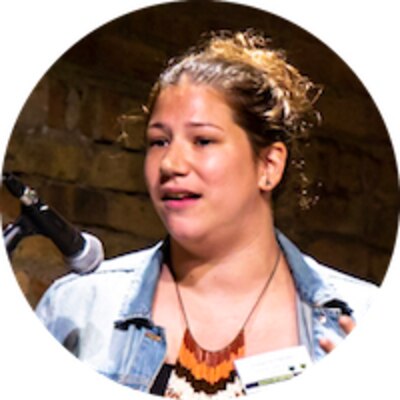When I started as a teacher in Chicago Public Schools, I remember hearing that half of teachers in urban school districts leave them in their first five years. When I went through rough patches I would wonder, was I going to make it?

I did make it, completing my fifth year of teaching last spring. But I can’t help but feel like something still isn’t right.
I feel like this should be the time when I am starting to really develop my expertise, feel secure in my skills and abilities, and build the self-confidence that I am effective in my craft. Instead, I feel lucky just to be surviving day to day and week to week.
I thought that by now I would be in a groove with planning and preparation. I thought that my Sundays might actually be relaxing. Instead, I find myself filled with the “Sunday scaries,” scrambling to get materials created, adjust lesson plans, and polish final drafts of IEPs. I never feel “caught up,” and can’t say I have ever known what that feels like.
Even though my class sizes are not the largest in the district, they are filled with students who — although so talented, resilient, and special — have such a wide variety of needs and deficits that I don’t feel I can adequately address given all of the constraints I face. There simply are not enough resources and time to do everything I need to do to give my students the best that they deserve. This weighs on me, leading to overwhelming feelings of guilt and helplessness that are often paralyzing.
In short, I am mentally and emotionally exhausted, and I know many of my fellow teachers are too.
I’ve been thinking about this reality more since I joined a number of colleagues at an educator mental health-focused event in October. We dug into our own struggles and and then worked on ways to manage our stress. We named our biggest day-to-day stressors and then explored different ways to practice self-care — such as journaling, meditation, or picking up an instrument — to balance out the feelings of high anxiety and pressure we feel at work. I left with a number of resources to seek out on my own as well as a sense of renewal. But the onus was on me to find solutions moving forward.
Now, Chicago’s mayoral race is heating up. And while I work on managing the stress of this job, it’s also on policymakers — including our next mayor — to address the stressors themselves.
Large class sizes, the limited time we are allotted to plan and prepare for the school day, insufficient paid time-off policies, and ever-tighter budgets we are asked to stretch to meet our students’ needs are all the result of policies that could be changed.
I can’t practice enough self-care to replace the structural changes needed to make our profession more sustainable.
But school leaders, the mayor, and state policymakers, could make a difference. More independent and collaboration time in teachers’ days would help give us time to chip away at expanding to-do lists. Real teacher-leader roles would give teachers power and voice in school decisions. Schools destigmatizing “mental health” days and organizing activities to help teachers de-stress would help, too.
Dissenters may point to the fact that in many other jobs you’re expected to manage your work-life balance and handle stress on your own. But teaching isn’t like every other job: the stakes are especially high, and we have less control of our time and are more isolated in our work. Students benefit from teachers with experience, and every time a capable teacher leaves Chicago’s schools because they were overwhelmed, students lose out.
For my part, I pledge to be aware of my mental health needs and plan to be intentional about my self-care this school year. I hope Chicago Public Schools, the Chicago Teachers Union, and our city and state elected leaders will commit to helping me and my colleagues not only to survive, but to thrive in our jobs.
As mayoral candidates continue to flesh out their education plans, they need to acknowledge that our mental health and well-being is critical to our success as teacher. How are they planning to help us access resources like counseling services? Prioritizing how to best care for educators will help us continue to provide the best care possible for students.
Teachers are already doing exceptional work given the many constraints they face. Imagine what more we could do for our students if we were better equipped ourselves.
Dayna Heller is a special education teacher at Roger C. Sullivan High School in Rogers Park. She is an active member of the Chicago Teachers Union and Educators for Excellence, a national teacher-led policy organization.
About our First Person series:
First Person is where Chalkbeat features personal essays by educators, students, parents, and others trying to improve public education. Read our submission guidelines here.


